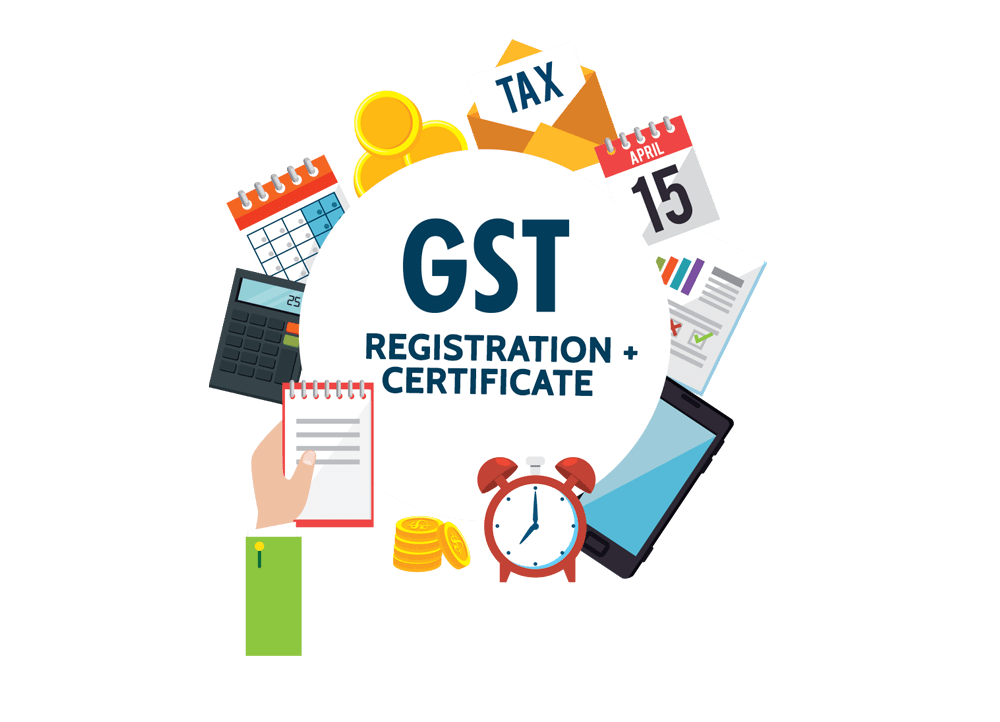How to Navigate Singapore GST Registration for Your Company
How to Navigate Singapore GST Registration for Your Company
Blog Article
Navigating the Intricacies of GST Enrollment: Specialist Tips and Best Practices for Smoother Compliance
Browsing the detailed landscape of Product and Services Tax Obligation (GST) registration requires an eager understanding of the progressing regulatory framework and precise interest to information. As companies strive to make sure compliance and stay clear of challenges, specialist assistance and ideal practices can work as important compass factors in this complicated surface. From analyzing enrollment needs to harnessing technical devices for structured processes, the trip towards smoother GST conformity is nuanced and diverse. Remain tuned to discover necessary approaches and insights that can help organizations guide through the complexities of GST registration with skill and self-confidence.
Understanding GST Registration Requirements

Along with turnover thresholds, businesses involving in interstate sales or providing taxable services might additionally be called for to register for GST, even if their turnover is below the suggested restriction (Singapore GST Registration). Comprehending these needs and limits is vital to stay clear of charges and make certain smooth operations within the lawful framework
Moreover, businesses should gather and prepare the necessary documentation, such as proof of identification, address, service unification, and checking account details, before launching the GST enrollment process. Falling short to supply exact info or meet the registration deadlines can cause penalties or other legal consequences. Consequently, organizations ought to remain educated concerning the particular GST registration demands appropriate to their procedures to preserve compliance and prevent prospective problems.
Organizing Important Paperwork
Businesses starting the GST registration process must thoroughly compile and arrange the vital documentation required for submission. The essential documents commonly needed for GST enrollment include proof of organization enrollment or address, unification and identity proofs of the service owners or companions, savings account details, proof of principal business, and consent forms. Guaranteeing that these papers are easily offered and arranged can improve the registration procedure and stop beings rejected or delays.
To successfully organize necessary documents, businesses must create a central system for storing and categorizing the called for documentation (Singapore GST Registration). Using digital storage space services can help keep easy gain access to and ensure that records are firmly stored. In addition, developing a checklist of all required files can act as a useful tool to track what has actually been gathered and what is still needed for submission

Leveraging Innovation for Efficiency
Enhancing functional efficiency via technological assimilation is vital for modern-day organizations navigating the intricacies of GST registration. Leveraging innovation can enhance processes, lower errors, and guarantee prompt conformity with GST guidelines. One of the crucial ways modern technology can assist in GST enrollment is with making use of automated software program services. These devices can help organizations track sales, generate billings, compute tax obligations, and send returns accurately. By automating these jobs, businesses can lessen manual errors and conserve time that would or else be invested in repeated management work.
In addition, modern technology can assist in smooth interaction with tax authorities. On the internet portals and communication devices enable organizations to send papers, solve inquiries, and receive updates in a more reliable fashion. This not only quickens the enrollment process however likewise helps in maintaining dependable and transparent interaction with the pertinent authorities.
Moreover, cloud-based storage space options provide discover this a secure system for organizations to shop and gain access to their monetary data, guaranteeing conformity with GST record-keeping demands. By streamlining information storage space and automating processes, companies can boost their total effectiveness and accuracy in GST enrollment procedures.
Proactive Conformity Tracking

To ensure effective proactive conformity tracking, organizations need to develop durable internal controls, conduct periodic audits, and utilize automation devices for real-time monitoring of GST deals. Regular training sessions for employees on GST conformity demands can additionally aid in producing a culture of compliance within the company. Additionally, engaging with tax professionals or experts can provide useful understandings and guidance on browsing complex GST guidelines.
Involving With Expert Professionals
Engaging skilled tax obligation experts can dramatically reinforce a firm's understanding and compliance with intricate GST guidelines. Professional specialists bring a riches of expertise and experience to the table, helping companies browse the complexities of GST enrollment easily. By leveraging their knowledge, business can make sure exact filings, reduce the risk of mistakes, and stay updated with the latest regulative changes.
When engaging with specialist professionals, it is necessary to select professionals with a solid track record in GST compliance (Singapore GST Registration). Look for specialists who have a deep understanding of the pertinent regulations and policies, along with experience collaborating with businesses in your industry. Effective communication is type in this partnership, so see to it to plainly define your assumptions and develop normal helpful site touchpoints to go over development and deal with any problems
Furthermore, specialist specialists can offer important insights and recommendations on maximizing your tax obligation technique, identifying prospective cost-saving opportunities, and enhancing your compliance procedures. In general, spending in professional working as a consultant solutions can go a lengthy way in ensuring smoother GST compliance and preventing expensive mistakes.
Final Thought
Finally, browsing the intricacies of GST registration requires a thorough understanding of the demands, organization of necessary paperwork, leveraging modern technology for effectiveness, aggressive compliance monitoring, and involvement with specialist specialists. By following these ideal practices, services can guarantee smoother conformity with GST policies and prevent prospective fines or fines. It is necessary to stay educated, positive, and attentive in managing GST registration to keep conformity and promote economic integrity.
To make certain conformity with tax obligation regulations, organizations must thoroughly comprehend the complex demands for GST registration. Product and Services Tax Obligation (GST) is a value-added tax obligation levied on the majority of goods and services in a nation, making it important for companies to sign up for GST to stay clear of legal consequences.In addition, organizations have to collect and prepare the essential documentation, such as proof of identification, address, organization unification, and financial institution account details, before launching the GST registration procedure. Organizations ought to stay informed concerning the details GST enrollment requirements applicable to their procedures to preserve conformity and prevent possible concerns.
The crucial papers typically required for GST enrollment include proof of business enrollment or identity, address and unification proofs of the business owners or companions, financial institution account details, proof of primary place of organization, and permission forms.
Report this page